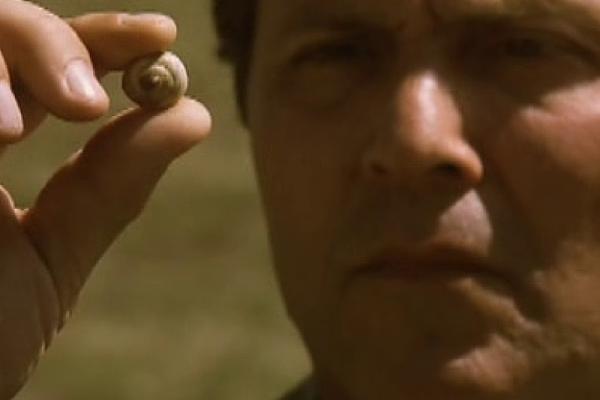
At the core of this presentation are several highlighted sequences from Attila Janisch’s 2004 film, Másnap (After the Day Before) which is very loosely based on Alain Robbe-Grillet’s Le Voyeur (1955). Through these scenes I demonstrate how the film uses and exploits elements of continuity editing (the classical editing system) and in particular how it constructs its diegetic spaces to create a non-linear, ambiguous and unreliably told story. As a theoretical background, I will outline a critique of the effects and the functioning of continuity editing by cognitively oriented film theorists (Todd Berliner, Dale J. Cohen, Tim Smith, Thomas Van Der Berg) and refer to their insights when giving a more nuanced description of "spatial unreliability" in narrative films.
The naturalness of continuity editing (and its mimesis of active perception), the Attentional Theory of Cinematic Continuity, change blindness, and the distinction between local (perceptional) and global (narrative) unreliability are all important notions concerning the rhetoric of cinematic space construction in movies that challenge the principles of analytic scene construction, the eyeline-match, the match on action, the 180 degree rule, and so on.
Antonioni’s Professione: Reporter (1975), Kubrick’s The Shining (1980), Michael Walker’s Chasing Sleep (2000), and Scorsese’s Shutter Island (2010, where the local incongruencies are as interesting as the global unreliability of the narrative) are examples that were influential for Janisch, posing similar questions of reliability and focalization through the construction of odd scenes and spaces. I will draw attention to some theoretical and narratological problems while analyzing the diverse techniques that filmmakers used in these films.
It is important to note that the corpus I am examining cannot be considered as experimental art cinema, because the films heavily rely on continuity editing and the viewer gets a strong sense of narrativity. The difference of their rhetoric mainly lies in the explicitness and perceptibility of the subversions of classical codes, which emerge from the local/textual level but have considerable effects on the narrative and its reception.
Tamás Csönge is a PhD student at the University of Pécs, writing his dissertation on the topic of unreliable film narration. Working in the frame of rhetorical and classical narratology, he published on topics of 20th century Hungarian novels, psychoanalytic interpretation of time travel movies, and narrative complexity in cinema and television. His areas of interest are film narratology, literary and film theory, ludology, horror films, and operas.
